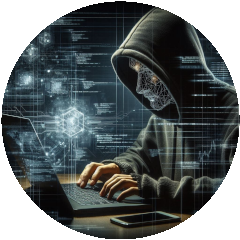As The Next HOPE draws near I figured now would be an appropriate time for me to say a few words about the misappropriation of the term “Hacker“. To quote Randal from Clerks II. “I’m taking it back”
How often do you seen mention these days like :-
- “Hacker steals hundreds of credit card details” (Hello, that’s not Hacking its credit card fraud).
- “Hacker defaces ****’s website” (Try Vandalism not Hacking.)
- “Hacker steals companies data to sell” (Try Industrial Espionage)
Yes there are people out there that do illegal things, a lot of them can be described as Skript Kiddies, crackers, thieves, vandal, humans. Yes there are Hackers that do illegal things, but that does not mean all Hackers do. There was a case in the UK a few years ago of a doctor who killed hundreds of his patients, does that make all doctors mass murderers?
Wikipedia describes the origin of the term Hack as thus :-
The term “hack” was first used by US university computing centre staff in the mid-1960s. The context determined whether the complimentary or derogatory meanings were implied. Phrases such as “ugly hack” or “quick hack” generally referred to the latter meaning; phrases such as “cool hack” or “neat hack”, to the former. In modern computer programming, a “hack” can refer to a solution or method which functions correctly but which is “ugly” in its concept, which works outside the accepted structures and norms of the environment, or which is not easily extendible or maintainable. The programmer keeps beating on it until a solution is found.
In a similar vein, a “hack” may refer to works outside of computer programming. For example, a math hack means a clever solution to a mathematical problem. The GNU General Public License has been described as a copyright hack because it cleverly uses the copyright laws for a purpose the lawmakers did not foresee. All of these uses now also seem to be spreading beyond MIT as well.
The term should be kept as it was originally intended, to describe those people who are curious about how things work, whether it be computers, networks, phones, electronics, maths, whatever. People who find ways to use things in ways that was not in the original specification. We used to cherish these people as innovators, explorers, etc. (Well apart from the early days when the church would burn them as heretics). We should go back to using “Hacker” as a positive description, and just call criminals “Criminals”. So Media People pay attention, I’m taking the word Hackers back.
To aid in the takeback, I will be posting a series of old Hacks, & examples of Hacking. None of them Illegal, none that caused Harm, Injury, disfigurement. There may have been some upset caused by some, but only in a “How come he can do that? why cant I? It’s not Fair”. They are all just examples of someone being curious, someone using things for more than they were designed for, someone helping others thanks to his playing.

